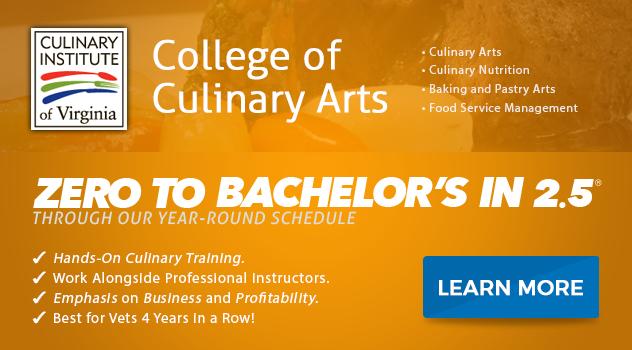
When it comes to managing a restaurant, great food is only part of the equation. Food service management makes art into science, creating businesses that provide mouth-watering offerings while bringing in big returns... and maybe even boosting their owners\chefs to stardom!
If you listen to some of the biggest names in the industry, success as a food-preneur might be within your reach. Here are six food service management tips straight from the professionals:
1. Keep the menu small and manageable. -Gordon Ramsay
Anyone who's watched more than a few episodes of Chef Gordon Ramsay's Kitchen Nightmares know that this is one of his most common complaints, and it's some of the best restaurant-management advice we can imagine. This one brings a twofer benefit.
First, a small menu means you and\or your staff can practice and be truly proficient at the dishes, making the finished product better for customers. Secondly, a limited selection means fewer food buys and very often less food being wasted if those menu items are rarely ordered.
Happier customers at lower costs should be the goal of every restaurant.
2. Adjust portions based on plate leftovers. -Mark Jensen
Here's a great little tip from Chef Mark Jensen of Sydney's Red Lantern restaurant: Keep an eye on how much food is left on customer's plates when they finish, or how many 'doggie bags' you provide, and adjust your portions to reduce the amount of food going uneaten in a single serving.
Ideally, every patron should leave your restaurant feeling pleasantly full, with little or no food left on the plate. Serving up a heapin' helpin' might make the restaurant a good deal for customers, but it's a terrible deal for the restaurant. Waste not, want not.
3. Give your staff input opportunities. -Roger Berkowitz
Roger Berkowitz of Legal Sea Foods, a chain of 30 restaurants, makes sure to listen to the little people in his organization. He recognizes that the wait staff who are interacting directly with patrons know a lot about the ins and outs of the restaurant, and makes sure to give them plenty of opportunities to input ideas.
This is vital if you're in a management role, rather than working directly at a restaurant. Your staff may be THE best source of actionable intel on day-to-day operations, and their recommendations for improving service or customer satisfaction should be taken seriously.
4. Watch your online reviews. -Greg Dollarhyde
Dollarhyde is a highly successful restaurant CEO, with a resume including Baja Fresh and Veggie Grill. One of his recommendations is to watch your online reviews like a hawk. Patrons today are very likely to post reviews on sites like Yelp or Google, or at least to brag/complain in their Facebook posts.
Obviously, not every complaint has to be taken seriously, as some patrons are just looking for reasons to gripe. But if you see a complaint repeatedly made, that's usually a sign you need to make changes to address it. Luckily, there’s a variety of inexpensive social media monitoring tools to keep you up-to-date on the current buzz with minimal time investment, making this an invaluable feedback method.
5. Leave room to renovate and expand. -Gerard Craft
Chef Craft owns and operates Niche in St. Louis, and focuses his advice on good location-scouting. Don't buy the first or cheapest property you come across. Try to purchase a property with room to expand the location, whether it's adding a second floor, another dining room, or just giving patrons more parking spaces.
Likewise, be aware of local zoning regulations and any other restrictions that might limit your ability to change, rebuild, remodel, or otherwise change the location to suit your needs. A lot of up-and-coming restaurants have found themselves hamstrung when it turned out needed expansions couldn't be accomplished, requiring expensive relocations.
6. Ditch tips? -Tom Colicchio
This last one's a bit more controversial, but it's a movement gaining ground in American restaurant operations. This world-famous Top Chef judge and food-preneur has begun moving away from tipping, instead adjusting base menu prices to include service costs.
As he tells it, this is better for everyone involved. Patrons don't have to worry about doing math under poor lighting while inebriated. Wait staff don't have to worry that they might get "stiffed" simply because the patron is having a bad day. Managers don't have to deal with the drama associated with tip discrepancies.
We wouldn't be surprised if more food service businesses took him up on his advice in the years to come.
Feeling Inspired? Become a Food Service Manager!
Food service management is a growing field and a great career option for those who love business or those who simply love food. Contact ECPI University for more information about a Bachelor of Science in Food Service Management today and learn how you could earn your degree in as little as 2.5 years! It could be the Best Decision You Ever Make!
ecpi was the best decision I've ever made
— grace (@terceiratops) February 25, 2015
DISCLAIMER – ECPI University makes no claim, warranty, or guarantee as to actual employability or earning potential to current, past or future students or graduates of any educational program we offer. The ECPI University website is published for informational purposes only. Every effort is made to ensure the accuracy of information contained on the ECPI.edu domain; however, no warranty of accuracy is made. No contractual rights, either expressed or implied, are created by its content.
For more information about ECPI University or any of our programs click here: http://www.ecpi.edu/ or http://ow.ly/Ca1ya.


